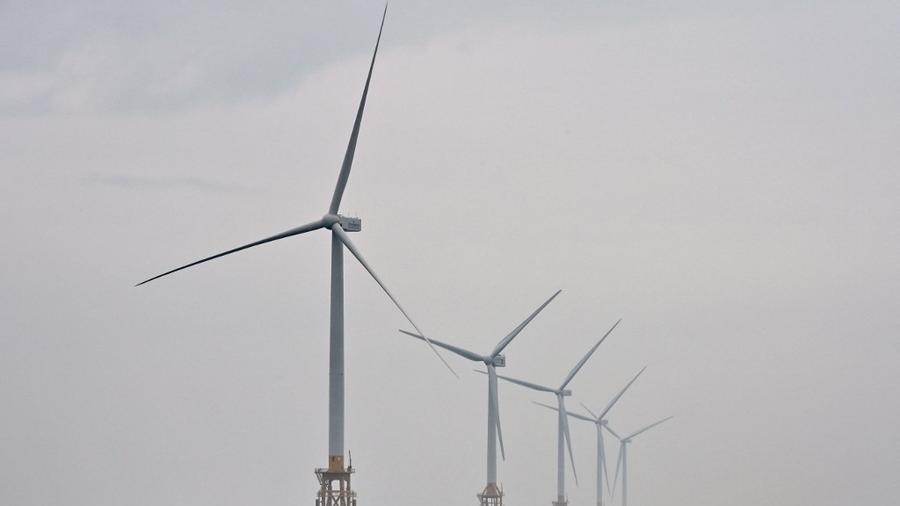 This file picture dated March 4, 2021 shows turbine towers at an offshore wind farm in waters some 10 kilometres off Gochang, South Korea. (PHOTO / AFP)
This file picture dated March 4, 2021 shows turbine towers at an offshore wind farm in waters some 10 kilometres off Gochang, South Korea. (PHOTO / AFP)
SEOUL — South Korean Vice Minister of Environment Yoo Je-chul said on Wednesday that the country will achieve carbon neutrality with a detailed roadmap set to be unveiled by March this year.
"The Ministry of Environment will build a feasible and detailed roadmap by March to achieve the country's goal of carbon neutrality," Yoo told a news conference with foreign correspondents in Seoul.
According to the plan, the country will raise the share of nuclear energy from 23.9 percent to 32.4 percent, while lowering the share of renewable energy from 30.2 percent to 21.6 percent
Yoo said the government had continuously discussed the energy mix, including the share of nuclear and renewable energy, to achieve the enhanced Nationally Determined Contribution (NDC) goals.
With the carbon neutrality act that came into force in March 2022, South Korea legislated a vision to achieve carbon neutrality by 2050 and reduce greenhouse gas emissions.
Under the act, the country's NDC stood at an emissions' reduction goal of 40 percent by 2030 compared to 2018.
Worries escalated about the achievement of the goal as the industry ministry announced its plan for the long-term electricity supply and demand last month to increase the share of nuclear energy and fossil fuels while cutting the share of renewable energy.
According to the plan, the country will raise the share of nuclear energy from 23.9 percent to 32.4 percent, while lowering the share of renewable energy from 30.2 percent to 21.6 percent. The share of thermal power using coal and liquefied natural gas will be increased from 41.3 percent to 42.6 percent.
The vice minister said the ministry will fully cooperate with the concerned authorities to set a reasonable share of renewables while establishing the basic plan for carbon neutrality and green growth in March.
He added that the ministry will update relevant policies, such as the emissions' trading scheme, to let South Korean companies contribute to the international community's efforts to reduce carbon emissions.


